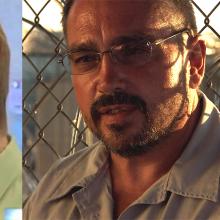Drugs
The United States has a long history of blaming immigrants for our problems. This misplaced blame fuels the fears of “invasion” and creates a false image of a deadly war between innocent native-born populations and corrupting foreigners. Instead of “welcoming the stranger,” we project our problems on those who are vulnerable. We perpetuate scapegoating instead of investing in the transformation needed to save lives.
Unless the money that will be made from marijuana’s federal legalization is used for robust community reinvestment in affected residential communities across America, it fails the moral litmus test of social justice and pumps oxygen into racial wealth disparities. Without this reinvestment, America will once again be blowing smoke into the face of those who have historically been most victimized by the criminalization of marijuana. The abovementioned federal legalization proposal includes the development of a community reinvestment fund to specifically benefit communities most ravished by the marijuana ban, and the decades-long failed war on drugs. The architects of the bill outlined some potential funding areas: job training, post-incarceration and expungement services, public libraries and community centers, youth programming, and health education.
"I do know it's not healthy to jump to a conclusion that officers did something criminal just because their camera was off," Davis said, adding that he would wait until an internal investigation was complete before making a judgment.

Image via agsandrew / Shutterstock / RNS
Religion can likely benefit from psychedelics, and now clergy can help prove it. Johns Hopkins Medical School’s Behavioral Pharmacology Research Unit is recruiting clergy as research volunteers in a study of “entheogens,” which are chemicals, usually derived from plants, that are ingested to produce an altered state of consciousness for religious or spiritual purposes.
1. At Least 10 Religious Groups Have Come Out Against Anti-LGBT 'Religious Liberty' Laws
"While substantial attention has been paid to the lawmakers, athletes, businesses, and celebrities who have challenged the new laws, less has been said about the steady flow of criticism from the exact group these RFRAs are ostensibly designed to protect: people of faith."
2. Stress and Hope in Tehran
On Thursday, the U.S. and Iran along with five world powers reached a preliminary deal that would curb Iran’s nuclear program and address sanctions imposed upon the country. The New York Times offers this glimpse into what those sanctions mean for ordinary Iranians.
3. Outcry Over RFRA Might Be a Fear of Christians
"The outcry isn’t about the law, it’s about us. It’s a fear that we will discriminate. And it is a fear based on a history that, whether we like it or not, is ours. We have, in no shortage of ways, broken relationships with the LGBTQ community. We have expelled our sons and daughters. We have protested them. We blamed them for the ills of society like a scapegoat. And no matter what we believe about same-sex marriage, that is wrong. Because of that, restoring relationship and trust with the LGBTQ community is on us."
4. Why I Won't Wear White on My Wedding Day
"As far as we have come, and as removed from these traditions’ origins as we may be, we are still attached to these remnants of a woman’s worth and identity being grounded in her sexual activity, importantly solely for the purposes of her pleasing a man."
I almost gave up on my drug-addict mother. But then I discovered that God never gives up.
In memory of Dorothy Molex (my mom), Philip Seymour Hoffman, and the countless others who battle the demons of addiction.
“What are you arguing with them about?” he asked. A man in the crowd answered, “Teacher, I brought you my son, who is possessed by a spirit that has robbed him of speech. Whenever it seizes him, it throws him to the ground. He foams at the mouth, gnashes his teeth and be- comes rigid. I asked your disciples to drive out the spirit, but they could not.” (Mark 9:16-18)
I never thought the Bible had anything to say about addiction. It’s not something that I ever heard preached or read in the Bible. As someone who grew up in a household with an addicted parent, I wanted answers, but church didn’t provide them and the Bible appeared to be silent — until I decided to read this story through the lens of my life and personal experiences.
Tom Junod of Esquire wrote an insightful piece about the death of Philip Seymour Hoffman titled “ Philip Seymour Hoffman’s Final Secret: The cost of holding up a mirror to those who could barely stand to look at themselves .” The whole article is worth reading, but these words are especially important:
"There was no actor, in our time, who more ably suggested that each of us is the sum of our secrets … no actor who better let us know what he knew, which is that when each of us returns alone to our room, all bets are off. He used his approachability to play people who are unacceptable, especially to themselves; indeed, his whole career might be construed as a pre-emptive plea for forgiveness to those with the unfortunate job of cleaning up what he — and we — might leave behind."
In his roles, Hoffman played unacceptable, despicable, and broken characters. In other words, he played our cultural scapegoats. But the beauty of Hoffman’s work is that he humanized our scapegoats. Of course, his characters were unacceptable because they were guilty of being repellent jerks, underserving of love or sympathy, which is exactly why they made good scapegoats. The function of a scapegoat is to unite us in hatred against them, so the scapegoat who seems to us to be completely guilty, like a cartoon villain, the better sense of unity we can form against them. The best scapegoat is one who even agrees with us about just how terrible he is. As Junod writes, Hoffman “used his approachability to play people who are unacceptable, especially to themselves.”
Sunday’s Super Bowl was dubbed by some as the “pot bowl,” as the Denver Broncos and Seattle Seahawks hail from the two states where fans can soon get marijuana as easily as they can get pizza. As public opinion has shifted in support of legalized marijuana, religious leaders are wrestling over competing interests, including high prison rates and legislating morality.
According to a 2013 survey from the Public Religion Research Institute, 58 percent of white mainline Protestants and 54 percent of black Protestants favor legalizing the use of marijuana. On the other side, nearly seven-in-10 (69 percent) white evangelical Protestants oppose it.
Catholics appear to be the most divided Christian group, with 48 percent favoring legalization and 50 percent opposing it. Opinions on how states should handle those who possess or sell marijuana varies among Christian leaders.
I recently watched Eugene Jarecki’s remarkable documentary, The House I Live In, which is about the American ‘war on drugs’ and the burgeoning prison population it engendered and continues to engender.
Rarely do I find myself murmuring and tsk-tsking during a movie, but this one was highly affecting — an intimate look at how history, racism, economics, and politics have created a system that no one is proud of and no one really likes. Even the cops and prison guards who claim to love their jobs express unease with the human suffering and unbalanced scales of justice that lead to it.
One particular story has stayed with me.
A man named Kevin Ott was found in possession of a small envelope of meth; prior to that he’d been arrested twice, again for possessing small amounts of illegal drugs (meth and marijuana).
He’s been in prison for seventeen years. And he will be there until he dies: Ott is serving a life sentence without the possibility of parole. Because he was a three-time offender, his state’s mandatory sentencing laws required that he be put away for life.
While church planners listened, a five-person focus group described life outside the congregation’s doors: A world falling apart.
Families are in disarray, the group said. Parents are refusing, or unable, to do the basic work of parenting, from giving guidance to saying “no.” Instead, they are prepping their children to join a national epidemic of narcissism.
Obesity is rampant, along with obesity-related diseases such as diabetes. Infant mortality is worsening as pregnant girls routinely continue smoking, doing drugs and drinking during pregnancy.
Clueless parents are buying heroin — today’s drug of choice — for their children, so the little ones don’t get beat up by dealers. Parents buy cases of beer for their underage children so they can drink at home, rather than drive drunk. Methamphetamine usage is widespread.
THIS STORY IS about the loss of a war and the sin and insanity of continuing to wage that war with the same weapon: prisons. From the well-meaning but naive “solution” of “just say no” to the equally well-meaning but equally naive mandatory minimum sentences, we have been defeated in our War on Drugs.
When we finally realized that we had lost the undeclared war in Vietnam, those remaining in Saigon climbed to the highest building and clung to the last helicopter leaving the country. Now it is time for the metaphor to be exercised in the drug war. We have lost.
Wither Walter White?
How the morality tale of a cancer-stricken chemistry teacher who transforms himself (first by desperation and then through sheer hubris) into a cold-blooded, Machiavellian drug kingpin will end is what legions of fans of AMC’s Emmy-winning Breaking Bad want to know.
But after the first episode of the series’ final season aired on Aug. 11, the answer to what happens to Walter White (Bryan Cranston) remains a mystery — at least for another seven weeks.
Since its debut in January 2008, Breaking Bad has taken its audience on a spiritual journey — following Walt’s soul on a slow, steady descent into a hell of his own creation.
“Fleeting moments of possible restoration for Walter occur throughout the series,” Blake Atwood writes in the new book The Gospel According to Breaking Bad, which was released as an e-book to coincide with the season premiere.
The four-bedroom, two-story modest house sits on a corner in this planned bedroom community, and when this 6-6 muscular-toned man welcomes you inside his home, there is no evidence Darryl Strawberry the player ever existed.
There are no pictures of Strawberry in a Mets uniform. No trophies. No plaques. None of his four World Series rings. Nothing from his eight All-Star Games. None of his 335 home run balls.
“I got rid of it all. I was never attached to none of that stuff,” says Strawberry, 51. “I don’t want it. It’s not part of my life anymore.”
I spent an entire day a couple of months ago in an outpatient clinic (I'm fine; thanks for asking). I met a lot of nurses, and every one of them was excellent.
When Velda came to take away the remains of my lunch, I offered her my untouched can of ginger ale.
"I don't drink soft drinks," she replied. Since I rarely do either, we started chatting.
Velda grew up in Tanzania, moved to Belgium, spent several years in London, and finally came to the United States. She returns to Tanzania regularly, and she is not happy with what she sees.
"I grew up eating lots of vegetables," she told me. "We might have had ice cream once every three years. But now people are eating American-style junk food. They don't know it's not good for them."
JIM BALMER, president of an addiction-recovery center called Dawn Farm in Ypsilanti, Michigan, has been an antiwar activist since the Vietnam days. His engagement with nonviolence has taken him to some unexpected places, from the antiabortion group Operation Rescue to working with addicts. Sojourners associate editor Elizabeth Palmberg interviewed Balmer early last year at the Consistent Life conference in Washington, D.C.
Elizabeth Palmberg: What was your work for peace during the Vietnam war?
Jim Balmer: I had been part of Detroit-area draft resistance. I went through almost all the conscientious objector status [process]. And it was 1970—what can I tell you? I was under the influence of substances one night, and I wrote the draft board in Pontiac, Michigan, and told them off; I just said, "come and get me." They never did. I suspect that, as the '70s progressed, they got more and more tired of putting us in jail.
The Detroit-Ann Arbor area was a hub for political activism. Students for a Democratic Society was founded there. YPFJ—Youth for Peace, Freedom, and Justice—there were all sorts of organizations. We would protest. The first time I got actually picked up was at a George Wallace rally—Wallace was a terrible, racist candidate from Alabama.
I started being interested in nonviolence. I was reading Mohandas Gandhi and Martin Luther King Jr., and I took King's nonviolence pledge when I was in high school.
ON A BLAZING August day last summer, Rosa Pérez Triana faced a crowd of several hundred people in downtown Tucson and held up a color photo of a pretty young woman.
“This is my daughter, Coral,” Pérez said in Spanish, her voice breaking. “A year ago she went missing. There are thousands of people in Mexico like me who don’t know what happened to their loved ones.”
A middle-aged woman from the violent state of Nuevo León in northern Mexico, Pérez had come to the United States with the Caravan for Peace with Justice and Dignity to tell her North American neighbors what had happened to her daughter—and to an estimated 80,000 other Mexicans who have been killed or disappeared during the country’s six-year-old war on drugs.
Her daughter’s story is typical. Guadalupe Coral Pérez Triana vanished on July 24, 2011, somewhere on the road between Reynosa, Tamaulipas, and Monterrey, Nuevo León. Five other young women were traveling with her. All are missing and presumed dead.
“The main purpose of the caravan is to show a human face,” explained Laura Carlsen, director of the Center for International Policy’s Americas Program in Mexico, who joined the caravan on its last leg through the East Coast. “These are people whose family members were victims.” Such are the human costs of the war on drugs that the U.S. government supports with arms and money.
IN LATE FEBRUARY, Guatemala’s foreign minister, megachurch-pastor-turned-politician Harold Caballeros, announced that he had formally raised the topic of drug legalization with his U.S. counterpart, Secretary of State Hillary Clinton. That same month, Guatemalan Vice President Roxana Baldetti started a Central American whirlwind tour to raise the issue of legalization with heads of state from El Salvador to Panama.
Panamanian President Martinelli, the leftist administration of Mauricio Funes in El Salvador, Costa Rica’s President Laura Chinchilla, and Honduran President Porfirio Lobo have agreed to meet to discuss the topic, though Baldetti cautioned that results “will not come overnight.” Also joining the dialogue is Nicaragua’s Daniel Ortega, the formerly Marxist president whose political resurrection coincided with a conversion to socially conservative Christian faith. Ortega professed to “fully share the concern” of the Guatemalan government. Caballeros’ conversation with Secretary Clinton went nowhere, of course; the Obama administration is not about to act on such a hot-button issue, especially in the midst of an election year.
But the move was gutsy for a Guatemalan administration that was only in its second month of power. So far, most Latin American presidents have broached the topic of legalization only after leaving office. Former presidents Fernando Henrique Cardoso of Brazil and Vicente Fox of Mexico, both pro-business allies of the U.S. while in power, have been outspoken proponents of legalization in recent years and were members of the Global Commission on Drug Policy, whose 2011 report urged “experimentation ... with models of legal regulation of drugs.” The emergence of such key proponents has likely opened up new political space to discuss what had been largely off-limits in formal U.S.-Latin America diplomacy talks.
Two weeks ago, McDonald's shareholders voted down a shareholder resolution asking the corporation to study how its advertising to children contributes to widespread childhood obesity. The resolution was sponsored by the Sisters of St. Francis of Philadelphia, along with a Catholic hospital network and other institutional investors.












